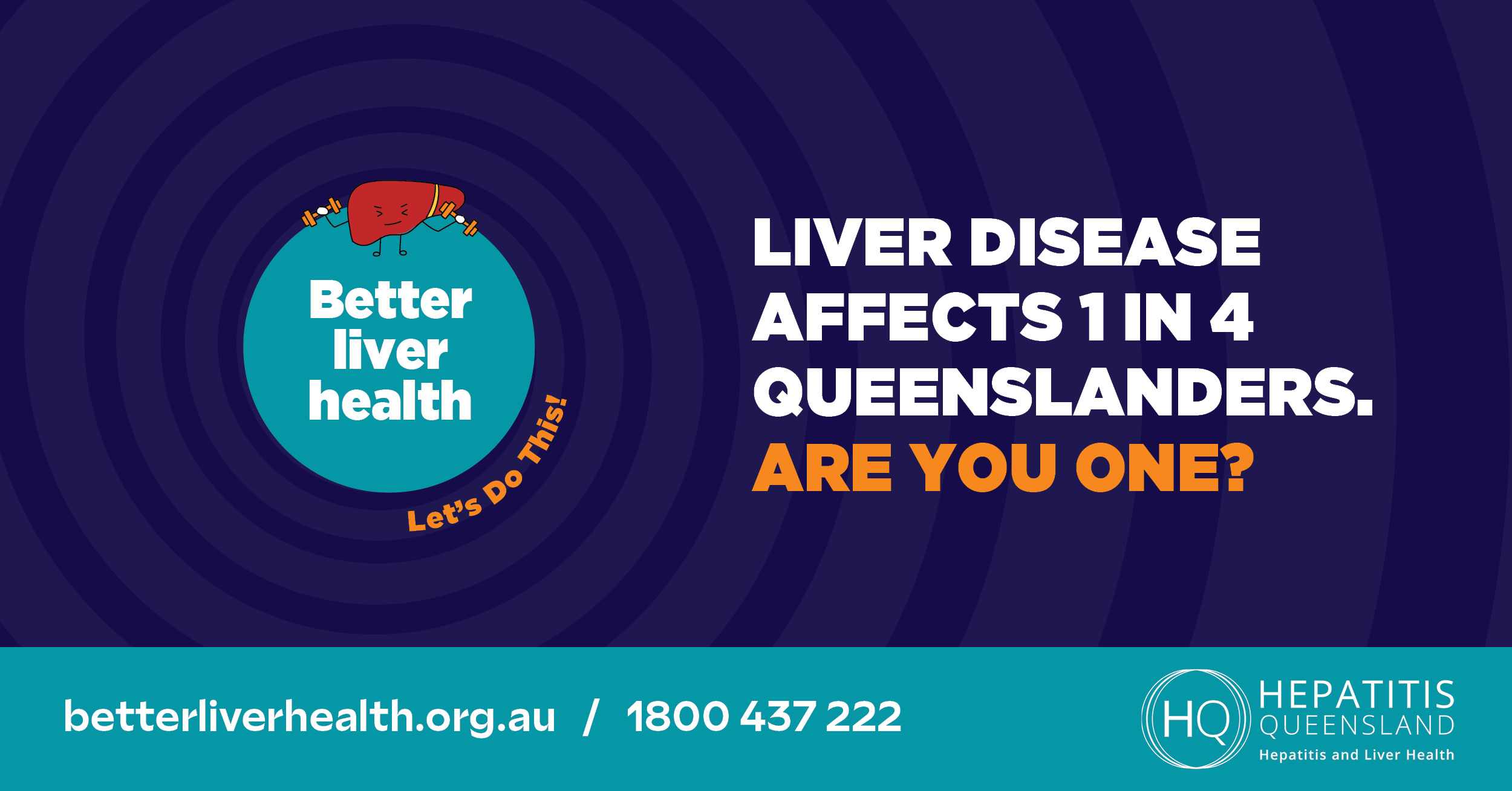



To receive important alerts and updates from Gold Coast Primary Health Network, please submit the form below.

To receive important alerts and updates from Gold Coast Primary Health Network, please submit the form below.

In the last couple of years, we’ve seen people miss a wide variety of health appointments including routine check-ups. This year, Hepatitis Queensland is calling on all Queenslanders to check in on their liver health.
Queensland’s World Hepatitis Day campaign theme “Better liver health. Let’s do this!” encourages everyone to start a conversation with their family, friends or patients about the importance of liver health checks.
While you may not experience any symptoms, liver disease now affects 1 in 4 Queenslanders and this number is rising. Untreated liver disease can lead to permanent liver damage such as cirrhosis or liver cancer.
A liver health check is an easy way to test for liver disease and identify risk factors. In many cases, liver disease can be prevented and even reversed if detected early enough.
A liver health checklist is available at www.betterliverhealth.org.au to help people prepare for a check-up and make the most out of their appointment.
Fatty liver and viral hepatitis are the leading causes of liver disease in Australia, but we can act to change this.
Fatty liver disease is a result of fat build-up in the liver and is closely linked to being overweight and chronic conditions such as diabetes. Making lifestyle changes such as following a Mediterranean pattern of eating, regular exercise and losing weight can slow or even reverse fatty liver disease.
With a cure available for hepatitis C, 25,000 Queensland livers could be saved, however many people are unaware they are living with the virus or that treatment is now much simpler. Hepatitis C treatment is tablets daily for 8-12 weeks, with little to no side- effects and a cure rate of over 95%.
Hepatitis B affects an estimated 34,000 people living in Queensland. Vaccination is available to prevent the transmission of hepatitis B. For those already living with hepatitis B, regular check-ups are needed to monitor the progress of the disease. Long-term treatment is also available to suppress the virus and reduce liver damage.
World Hepatitis Day is an annual event celebrated globally on July 28 to raise awareness of viral hepatitis and to influence real change. It is one of only nine official global public health days recognised by the World Health Organization.
The global initiative to eliminate viral hepatitis by 2030 is fast approaching but action is needed for Australia to reach this goal.
Visit www.betterliverhealth.org.au for liver health information and resources.
So we can provide you with the most accurate information,
please tell us a little more about yourself

